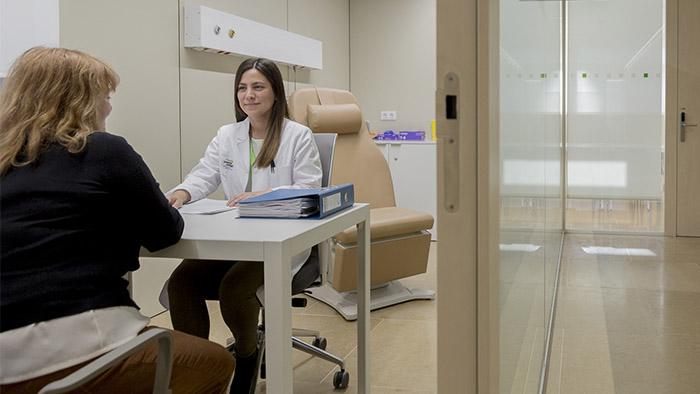25 Mar | 2019
Participants from Barcelona join the AMYPAD Diagnostic and Patient Management Study

AMYPAD recruitment at BBRC
More than 20 research participants of Barcelonaβeta Brain Research Center (BBRC) have joined the AMYPAD Diagnostic and Patient Management Study since the start of the recruitment in January of 2019. The research center of the Pasqual Maragall Foundation will also open the recruitment of participants for the Prognostic and Natural History Study in April. Both studies are part of this European consortium of Amyloid imaging to prevent Alzheimer’s disease, which is a combination of 9 partners from the academia (BBRC is one of them), 3 from the industry, 2 small and medium-sized enterprises (SMEs) and 1 patient organization.
On the one hand, the aim of the Diagnostic and Patient Management Study is to select and follow-up a memory clinic population investigated for memory complaints or possible Alzheimer’s disease in order to determine when β-amyloid PET imaging is best performed and how the resulting information is influencing diagnostic thinking, patient management and ultimately decision trees and cost-effectiveness of dementia care. BBRC is committed to recruit 112 research participants with subjective cognitive decline, mild cognitive impairment or dementia who will be divided in 3 groups, according to the study procedure. Most of them will have to undergo Amyloid PET imaging and different cognitive and clinical tests.
On the other hand, the goal of the Prognostic and Natural History Study is to better understand the natural history of the disease, in coordination with the EPAD longitudinal cohort study. In this case, BBRC will recruit 120 research participants from the EPAD cohort at different risk of developing Alzheimer’s disease and they will also have to undergo Amyloid PET imaging.
AMYPAD has currently recruited more than 220 research participants for the Diagnostic and Patient Management study across 6 European sites, and more than 55 research participants for the Prognostic and Natural History Study in 1 study site (more sites will open soon).
The consortium has received funding from the Innovative Medicines Initiative 2 Joint undertaking under grant agreement No 115952, with the support from the European Union’s Horizon 2020 research and innovation programme and EFPIA.









